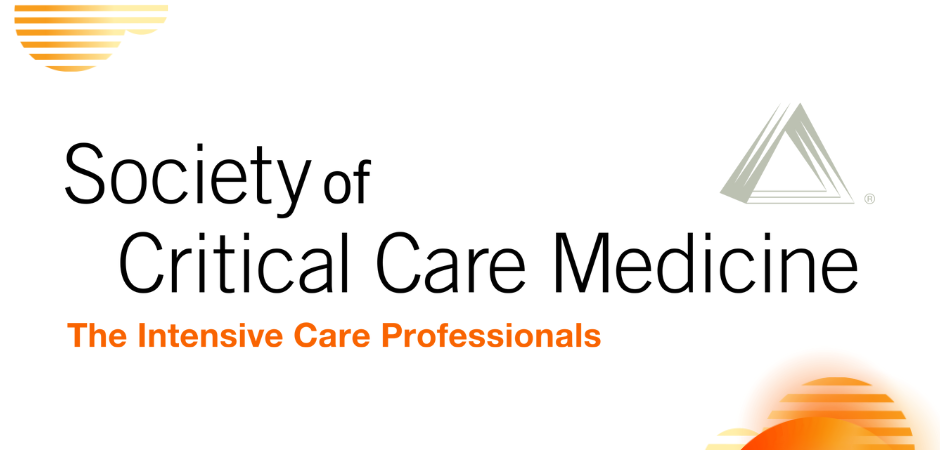Named for Society of Critical Care Medicine's (SCCM) founder and its first president, Max Harry Weil, MD, PhD, MCCM, the SCCM-Weil Research Grant is typically awarded to two SCCM members as a stepping-stone to carry out basic, translational, or clinical research. SCCM seeks to sponsor research efforts that will ultimately improve patient care in the intensive care unit (ICU) and after hospital discharge. For the first time, SCCM has increased the number of grants from two to three: Thomas S. Valley, MD, MSc; Jacob S. Brenner, MD, PhD; and Blair N. Wendlandt, MD, MSc.
Named for Society of Critical Care Medicine’s (SCCM) founder and its first president, Max Harry Weil, MD, PhD, MCCM, the
SCCM-Weil Research Grant is typically awarded to two SCCM members as a stepping-stone to carry out basic, translational, or clinical research. SCCM seeks to sponsor research efforts that will ultimately improve patient care in the intensive care unit (ICU) and after hospital discharge. For the first time, SCCM has increased the number of grants from two to three: Thomas S. Valley, MD, MSc; Jacob S. Brenner, MD, PhD; and Blair N. Wendlandt, MD, MSc.
Thomas S. Valley, MD, MSc
Using video game technology, Thomas S. Valley, MD, MSc, seeks to reduce diagnostic errors in acute respiratory failure. Dr. Valley explains, “I’ve struggled to figure out exactly what the cause is and, ultimately, I and many other [clinicians] that I speak to treat a bunch of different conditions all at the same time because we’re worried about missing something. I think some of those treatments are contradictory and some have potential harms.”
Dr. Valley plans to work with computer science students at University of Michigan to develop virtual reality simulations to allow clinicians to practice various treatments for patients with acute respiratory failure. He thinks video game technology creates an enjoyable yet realistic virtual training environment. The study findings will form the foundation for future R-series proposals for a multicenter randomized trial of a video game to reduce diagnostic errors in acute respiratory failure.
Jacob S. Brenner, MD, PhD
Jacob S. Brenner, MD, PhD, aims to overcome the challenges faced in treating acute respiratory distress syndrome (ARDS). He and his team created a nanotechnology called D20-tagged liposomes (DLs) to deliver unprecedented amounts of drugs to inflamed alveoli at very high concentrations, thus lowering off-target side effects. DLs are 100-nanometer-diameter lipid spheres loaded with small-molecule drugs and covalently coated with the team’s newly discovered D20 tag. On IV injection, DLs massively accumulate in the alveolar marginated neutrophils, which are markedly increased in acute lung injury. By assessing the therapeutic efficacy of DL-loaded drugs in two ARDS-like mouse models and by testing DLs in ex vivo human lungs, the team aims to further translational development of DLs and provide fundamental insights into mechanisms of drug delivery. Their work could create a new therapy for ARDS.
Blair N. Wendlandt, MD, MSc
Blair N. Wendlandt, MD, MSc, is proposing a prospective cohort study to increase understanding of posttraumatic stress disorder (PTSD) among ICU family caregivers. Dr. Wendlant says, “When I started clinical rotations as a third-year medical student, I found that sitting and talking to patients and their families was one of the parts of my workday that I liked best. As I moved through my training and into residency, I figured out that I loved being in the ICU and knew that I would pursue fellowship training in pulmonary and critical care medicine. Given that the ICU environment can be especially stressful for patients and their families, it was sort of a natural progression that I developed an interest in ICU family caregiver emotional distress.”
Emotional distress is common among family caregivers of patients in the ICU, with nearly two-thirds of caregivers affected by PTSD. Interventions to reduce ICU family caregiver PTSD have had limited success, which may indicate an incomplete understanding of the underlying mechanisms. The cohort study aims to define six-month PTSD trajectories and identify patient and caregiver characteristics that predict trajectory membership. The study also aims to identify stressors and preferences for emotional support among caregivers with significant PTSD symptoms and to measure the association between caregiver PTSD trajectory and patient outcomes.
Grant Applications
Apply for SCCM grants at
sccm.org/grants. The application portal for the SCCM Research Grants opens April 1, 2020, and closes May 30, 2020.
